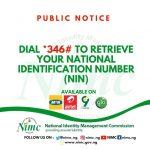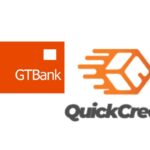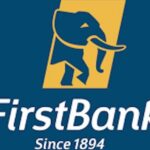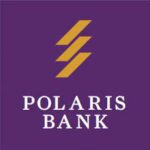Last Updated on September 26, 2024 by admin
Are you looking at getting that dream house and you are looking at how to get the funds? The Nigerian government has unveiled how citizens can own a house without stress. All they need is a National Housing Fund that will allow them to own that dream home.
The National Housing Fund (NHF) was established by Act 3 of 1992 with the aim of Mobilization of funds for the provision of affordable residential houses for Nigerians. Also funds shall be contributed by Mandatory contribution of 2.5% of monthly income of Nigerians earning =N=3000 and above per annum.
This shall be contributed through Federal Mortgage Bank of Nigeria and you shall be above the age of 21years in paid employment to a low interest, government funded loan particularly those within the low and medium-income levels who cannot afford commercial housing loans e.g. civil servants, traders, artisans, commercial drivers, etc
Any intending beneficiary must be a registered contributor and up to date with his/her contributions. The pool of funds created by the contributors nationwide becomes available to any contributor to borrow from, after contributing for a minimum of six months.
Individuals can only apply through a duly licensed and accredited Primary Mortgage Institution (PMI) of their choice and not directly to the FMBN. Loan who packages and forwards the application to FMBN. A contributor is eligible to access a maximum loan amount of =N=15 million repayable over a maximum period of 30 years at an affordable interest rate of 6%.
Features and benefits of National Housing Fund “NHF /Federal Mortgage
Features of National Housing Fund (NHF):
-
Mandatory Contributions: 2.5% of monthly income deducted from salary and paid into the NHF.
-
Eligibility: Open to all Nigerian citizens.
-
Loan Options: Provides loans for housing construction, renovation, and purchase.
-
Interest Rates: Offers subsidized interest rates.
Benefits of National Housing Fund (NHF):
-
Affordable Housing: Increases access to affordable housing.
-
Home Ownership: Encourages home ownership.
-
Savings: Fosters savings culture.
-
Employment: Generates employment in construction sector.
-
Economic Growth: Contributes to national economic development.
Features of Federal Mortgage Bank of Nigeria (FMBN):
-
Mortgage Financing: Provides mortgage loans.
-
Refinancing: Offers refinancing options.
-
Housing Development: Supports housing development.
-
Loan Administration: Manages NHF loans.
Benefits of Federal Mortgage Bank of Nigeria (FMBN):
-
Accessible Mortgage: Increases access to mortgage financing.
-
Long-Term Loans: Offers long-term loans.
-
Low-Interest Rates: Provides low-interest rates.
-
Home Renovation: Supports home renovation.
-
Housing Provision: Contributes to housing provision.
How to get start with National Housing Fund (NHF)
To get started with the National Housing Fund (NHF), you will need to follow these steps:
1. Familiarize yourself with the purpose and benefits of the National Housing Fund. The NHF is a scheme created by the Federal Government of Nigeria to provide affordable housing finance to Nigerian workers.
2. Check if you meet the eligibility criteria for the NHF. Generally, employees in the public and private sectors who contribute a specified amount to the scheme are eligible. Self-employed individuals can also participate by making voluntary contributions.
3. Visit the National Housing Fund office or the Federal Mortgage Bank of Nigeria (FMBN) to register. You will need to provide your personal information, employment details, and complete the necessary registration forms.
4. Once registered, you will need to open an NHF account with the FMBN. This account will serve as a repository for your contributions to the scheme.
5. Begin making regular contributions to the NHF from your salary or directly as a self-employed individual. The contribution amount is usually 2.5% of your monthly income if you are in the formal sector.
6. As you continue to contribute to the NHF, your funds will accumulate over time. These funds will be used to provide affordable housing loans or finance housing development projects.
7. Once you have contributed for a specified period (usually six months), you can apply for an NHF loan. The loan terms and conditions will vary, but they are generally at favorable interest rates and with longer repayment periods compared to commercial loans.
8. Prepare the necessary documentation required for the loan application, including proof of income, employment confirmation, title documents, and other supporting documents as specified by the NHF.
9. After submitting your loan application, the NHF will evaluate your eligibility and the documentation provided. If approved, the loan will be disbursed to you or directly to the developer/seller, depending on the loan purpose.
10. Once you receive the loan, ensure to make timely repayments as per the agreed terms to avoid penalties and maintain a good credit standing.
Remember to consult with the National Housing Fund or the Federal Mortgage Bank of Nigeria for accurate and up-to-date information on the specific requirements and processes involved in participating in the NHF.
What are the documents required when applying for National Housing Fund “NHF /Federal Mortgage loan?
To apply for a National Housing Fund (NHF) loan in Nigeria through the Federal Mortgage Bank of Nigeria (FMBN), you will typically need to provide the following documents:
Mandatory Documents for All Applicants:
- Completed NHF Loan Application Form: This form can be obtained from the FMBN or a Primary Mortgage Bank (PMB).
- Offer Letter/Acceptance Letter or Agreement of Sale: This document confirms your interest in a specific property and its agreed-upon price.
- Evidence of NHF Participation: You must provide evidence of consistent contributions to the NHF for at least six months. This is usually in the form of a payslip or bank statement.
- Title Documents of the Property: These documents prove ownership of the property and are essential for the loan to be secured against it.
- Valuation Report: A recent valuation report from a registered valuer is required to assess the property’s current market value.
- Tax Clearance Certificate: You’ll need to provide a tax clearance certificate for the previous three years to prove your tax compliance.
- Letter of Undertaking to Pay Equity Contribution: This document indicates your commitment to paying the required equity contribution, usually a percentage of the property’s value.
- Employment Letter: A letter from your employer confirming your employment status, income, and length of service.
- Pay Slips: Recent pay slips (usually the last three months) to verify your income.
- Means of Identification: A valid national ID card, international passport, or driver’s license.
- Passport Photographs: Recent passport photographs of the applicant.
Additional Documents (May Be Required):
- Approved Building Plan: If you are building a new house, you’ll need an approved building plan.
- Bill of Quantities (BOQ): This document details the cost of construction materials and labor for building projects.
- Other Supporting Documents: The FMBN or PMB may request additional documents depending on your specific situation.
How can a contributor retrieve his/her NHF participation number?
If you have previously registered or updated your Mobile Number with FMBN, you can retrieve your NHF Number while on the go.
1.USSD
To commence, follow the following steps:
– Dial *219# USSD code and Send
– Type 3 and Send
– Your NHF number will be displayed.
2. Visit an FMBN Office:
- Visit any branch of the Federal Mortgage Bank of Nigeria (FMBN) and request your NHF number. Be prepared to provide your personal information and employment details.
Eligibility for National Housing Fund
-
You must be a Nigerian citizen above 18 years old
-
You must have contributed to the National Housing Fund for at least six months
-
You must have a regular flow of income to guarantee loan repayment
-
You must open a savings account with a registered Primary Mortgage Bank (PMB)
-
You must provide satisfactory evidence of regular income
-
You must submit photocopies of valid title documents, such as a Certificate of Occupancy
-
Individuals cannot apply directly to the Federal Mortgage Bank of Nigeria (FMBN) but must go through a duly licensed and accredited Primary Mortgage Institution (PMI)
-
The maximum loan amount is N15 million, payable over 30 years
-
The interest rate is 6%, fixed throughout the loan tenure
How does a contributor obtain an National Housing Fund loan?
Eligibility Criteria
-
The applicant must be a registered contributor to the NHF scheme.
-
The applicant must have consistently contributed to the NHF for at least six months.
-
The applicant must be a Nigerian citizen.
-
The applicant must be between 18 and 60 years old.
-
The applicant must have a steady income.
- Choose a Primary Mortgage Institution (PMI):
- Select a registered and accredited Primary Mortgage Bank (PMB) or other approved PMI. This is the financial institution through which you will apply for and receive the loan.
- Complete Application Form:
- Obtain and complete the NHF loan application form from the chosen PMI.
- Gather all required supporting documents (see the comprehensive list in a previous response).
- Submit Application and Documents:
- Submit the completed application form and all supporting documents to the PMI.
- Pay the required application fees and equity contribution (if applicable).
- Application Processing:
- The PMI will review your application and documents.
- They may request additional information or clarification if needed.
- The FMBN will assess your application based on the PMI’s recommendation.
- Loan Approval and Disbursement:
- If your application is approved, you will receive a formal offer letter from the FMBN through your chosen PMI.
- Upon acceptance of the offer, the loan amount will be disbursed to the PMI, which will then disburse it to you or the seller of the property (depending on the agreement).
- Repayment:
- You will start repaying the loan through the PMI in monthly installments as per the agreed-upon terms and conditions.
What is security for the NHF Loan
Q: Who can apply for an NHF loan?
A: Any Nigerian above 18 years old, employed in the public or private sector, and who has been contributing to the NHF for at least six months.
Q: What is the maximum loan amount I can get?
A: The maximum loan amount is ₦15 million, subject to affordability and other factors.
Q: Can self-employed individuals apply?
A: Yes, but they need to provide additional documentation like business registration and tax returns.
Application Process:
Q: How do I apply for an NHF loan?
A: Apply through a Primary Mortgage Institution (PMI) of your choice. They will guide you through the process and submit your application to the Federal Mortgage Bank of Nigeria (FMBN).
Q: What documents do I need for the application?
A: You’ll need documents like completed application form, offer letter for the property, evidence of NHF participation, title documents, valuation report, tax clearance, etc.
Q: How long does it take to get the loan approved?
A: The processing time varies but typically takes a few weeks to a few months.
Loan Terms:
Q: What is the interest rate for NHF loans?
A: The interest rate is fixed at 6% per annum.
Q: How long is the repayment period?
A: The maximum repayment period is 30 years.
Q: Is there an equity contribution requirement?
A: For loans up to ₦5 million, there is no equity contribution. For loans above ₦5 million and up to ₦15 million, a 10% equity contribution is required.
Repayment and Default:
Q: How do I repay the loan?
A: Repayment is through monthly deductions from your salary or direct payments to your PMI.
Q: What happens if I default on the loan?
A: The FMBN can take legal action, including foreclosing on the property used as collateral.
Other Questions:
Q: Can I use the loan for land purchase?
A: No, the loan is specifically for building, purchasing, or renovating a residential property.
Q: Can I get an NHF loan more than once?\
A: No, you are eligible for only one NHF loan in your lifetime.
Q: What if I lose my job during the loan repayment period?
A: Contact your PMI immediately to discuss possible options, like loan restructuring or moratorium.
- The 5 Cs of Credit Explained - February 9, 2026
- How to Register for CIBC Online Banking and Mobile - January 13, 2026
- All Nigerian Banks Ussd Code for transaction - November 30, 2025









